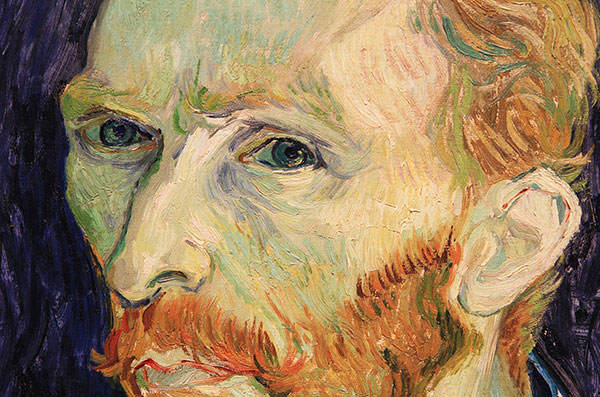Summary
“One in four British girls hit by depression at 14 as experts blame increase in cyber bullying and academic pressure,” says the Sun after a large study found 24% of 14-year-old girls in the UK report symptoms of depression.
The Millenium Cohort Study followed more than 19,000 children born in the UK in 2000 to 2001. Parents completed surveys when the children were aged 3, 5, 7, 11 and 14 about any emotional difficulties they were having. At age 14, the children also completed a short questionnaire about their mental health.
Levels of anxiety and depressive symptoms were similar for girls and boys up to the age of 11. At age 14, parents reported 12% of boys and 18% of girls had emotional problems. But when the 14-year-olds themselves were asked about their mental health, 9% of boys and 24% of girls reported depressive symptoms.
Though the statistics are worrying, it is important to note that these were responses to questionnaires and not formal diagnoses of depression so the real figures are likely to be lower. However, it is still of concern that so many children are struggling with emotional problems.
If you have concerns about yourself or a child, see your GP as there are many effective treatments available including talking therapies.
Find more information and advice for young people on mental health problems.
Where did the story come from?
The study was carried out by researchers from University College London, and was funded by the Economic and Social Research Council and the Government.
It was published by the Centre for Longitudinal Studies, an Economic and Social Research Council resource centre based at University College London and is free to read online (PDF, 554kb).
In general, the media reported the research accurately, although few explained that the children had not been formally diagnosed with depression and had only reported some symptoms in a questionnaire.
What kind of research was this?
This was a cohort study in which children born in the millennium were followed up over 14 years through questionnaires given to both parents and the children themselves.
This type of observational study is good for looking at patterns of illness in the population. However, it relies on people agreeing to take part so can be subject to selection bias whereby only people with an interest in the topic complete the survey.
What did the research involve?
The Millenium Cohort Study recruited the parents of 19,517 children born in 2000 to 2001 from England, Scotland, Wales and Northern Ireland.
When the children were aged 9 months, 3, 5, 7, 11 and 14 years, the parents answered questionnaires about their physical, emotional, social, cognitive and behavioural development. They also provided details about their family relationships, economic status and family life.
When the children were aged 3 and above, the questionnaires included the Strengths and Difficulties Questionnaire which includes parental concerns about behaviour problems, hyperactivity and bullying, and gives a score out of 10, with higher scores indicating greater problems.
When the children were aged 14, they completed the Short Mood and Feelings Questionnaire. This consists of 13 statements. Children are asked if they felt the statements were true, sometimes true or not true reflections of how they felt in the previous two weeks:
I felt miserable or unhappy.
I didn’t enjoy anything at all.
I felt so tired I just sat around and did nothing.
I was very restless.
I felt I was no good anymore.
I cried a lot.
I found it hard to think properly or concentrate.
I hated myself.
I was a bad person.
I felt lonely.
I thought nobody really loved me.
I thought I could never be as good as other kids.
I did everything wrong.
What were the basic results?
Average scores on the Strengths and Difficulties Questionnaire (0 to 10) completed by parents were low overall (a lower score indicating lesser problems):
Behaviour problems were more likely at the age of 3, with a score of just below 3, which then reduced and stayed around 1.
Emotional symptoms gradually increased from 1 to just over 2 by the age of 14.
Hyperactivity was the biggest problem, scoring around 3 at all ages.
Peer problems scored between 1 and 2 at all ages.
The proportion of children reported to have emotional problems by their parents increased with age:
at the age of 3, it was 8%
by 11, this had risen to 12%
at 14, it was still 12% for boys but had increased to 18% for girls
The proportion of children reported to have behaviour problems varied with age:
at the age of 3, 20% of boys and 17% of girls
at 5, 11% of boys and 7% of girls – at 14, 15% of boys and 11% of girls
According to the Short Mood and Feelings Questionnaire completed by 14-year-old children:
24% of girls reported high levels of depressive symptoms
9% of boys reported high levels of depressive symptoms
Ethnicity and household income results indicate that children from all backgrounds and socioeconomic status can suffer from symptoms of depression:
Prevalence for girls ranged from 9% of Black African and 15% of Bangladeshi background to 25% of white and 27% of mixed race.
Mixed-race boys were also more likely to have symptoms of depression, at 13% compared to 3% of those of Indian ethnicity.
18% of girls from the highest income bracket, 23% from the lowest and up to 27% of those from the second lowest bracket had symptoms of depression.
12% of boys in the second lowest bracket going down to 6% in the highest bracket had depression symptoms.
How did the researchers interpret the results?
The researchers concluded that “children’s perspectives about their mental health may be different from their parents”. They say this “highlights the importance of obtaining young people’s own perspective of their mental ill-health, alongside other perspectives”.
Conclusion
This large cohort study highlights high levels of depressive symptoms in children and adolescents.
It is however important to note that these are symptoms – we don’t know how many of the children would be diagnosed with depression.
When parents complete the Short Mood and Feelings Questionnaire, it is estimated that it will accurately identify 75% of children with depression and 73% of children without depression. But it is less accurate when children complete it. Recent research suggests that it can identify 60% of children with depression and 61% of children without depression.
Despite these limitations, the fact that so many children report symptoms is of concern. Various experts in the media have suggested reasons, ranging from greater awareness of mental health issues and therefore increased reporting, to greater pressure from social media. Further research is needed to identify the causes.
It is important to seek help early for children with emotional problems and your GP is the best place to start. You can also contact the charity Young Minds that offers information and help to both young people and their parents or carers.




